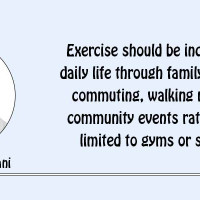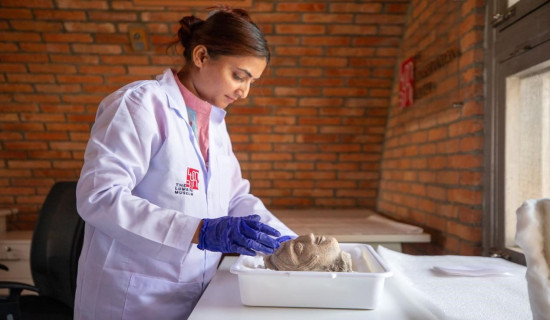- Sunday, 25 May 2025
COVID-19 Pandemic Is Far From Over
More than three years ago, on March 11, 2020, World Health Organisation (WHO) first formally declared COVID-19 as a pandemic. Since then, we have seen our life transformed from what used to be normal. And a series of lockdowns and partial lockdowns changed our life drastically. It has resulted in change in our normal traditions, disrupted our daily activities, and claimed millions of lives. In April 5, 2023, there were 73,787 new cases with 384 deaths (Worldometer, 2023). And not to forget many more are not being recorded as real-time data management is relaxed across most countries. Long COVID will continue to affect millions of people globally.
In recent days, the XBB.1.16 subvariant of omicron has produced a rise in the number of cases in Nepal, but the burden of severe disease remains low, thanks to the lower average severity of Omicron subvariants and high levels of partial immunity owing to prior infection or vaccination. The number of new cases has substantially decreased and, luckily, hospitalisations and deaths have also dropped significantly over the year. These very real improvements were due to outstanding scientific innovation in prevention and treatment combined with sustained efforts of individuals, communities, and countries. The innovation includes the wide availability and utilisation of testing, access to vaccination of booster doses offering protection against newer variants, and the development of effective treatments to reduce the severity of illness.
Preventive measures
Preventive measures such as masking, hand washing, and physical distancing during times of surge in infection around the globe have also played a significant role in containing virus spread. Still, we should remain vigilant about the infection surge due to the new variant. Older individuals, people with underlying health conditions, and those who have not been vaccinated continue to be most vulnerable to undesirable outcomes. Inequities continue to exacerbate vulnerabilities that include lagging access to vaccines and treatment for COVID-19 for people in some countries, resulting in the unequal burden of severe illness in people residing in those countries.
We must not forget that COVID-19 can be particularly risky for immunocompromised adults, a group whose number in our country is in the hundreds of thousands. Numerous studies have revealed that COVID-19 vaccines offer only partial protection in those populations due to the inability of such persons to generate an effective immune response. For the safety of all vulnerable populations and to prevent severe symptoms, there remains a collective responsibility to do everything possible to minimise virus spread in our communities that include preventive measures.
The impact of the pandemic on all aspects of society has been enormous and painful, but we have overcome its major insult. The toll of this novel coronavirus has been reduced thanks to swift and timely responses from science, healthcare, and public health. The rapid development of vaccines and effective treatments has transformed the fight against viral infection. However vaccines still remain scarce in some low- and middle-income nations. It is important to note that the more the virus circulates, the more chances it has to mutate into something worrisome.
Delta and Omicron variants provided an unforgettable example of the need to not let our attention divert. Though not as virulent as other variants, Omicron’s mutations stunned scientists when it appeared and fueled its breathtaking spread around the world in the weeks that followed. Omicron then rapidly displaced earlier variants and, though not as dangerous on a case basis, the increased number of infections has made Omicron much more lethal. If Omicron had been as virulent as Delta, things would have been much critical and severe.
Future Directions
Amid the slow pace of the global vaccination campaign and the rapid emergence of new virus variants potentially driven by the selective pressure that inconsistent vaccine coverage is putting on the virus, scientific communities are beginning to admit that COVID-19 is here for good. As long as people somewhere in the world are still waiting for their first shots, COVID-19 will have human hosts to reproduce and also, potentially, to mutate, creating the kind of variants that can rapidly spread across the globe. We must remember that as long as this virus remains in circulation, whether in other countries or among our communities, new variants may arise that could bypass the protection offered by currently available vaccines.
The COVID pandemic may never be over. However, the public health threat of this virus will continuously decline. The need to learn lessons from the pandemic ahead of the inevitable next pandemic is essential. History has demonstrated infectious diseases have the ability to evolve and emerge unpredictably. The next pandemic may be just around the corner and we are unaware of it. Moreover, we must remain vigilant in our emergency preparedness, aware of our collective responsibility to protect vulnerable populations that are most at risk, and committed to providing the best available services to all of our citizens at a crucial time.
(Dr. Lohani is the clinical director at the Nepal Drug and Poison Information Centre. lohanis@gmail.com)









-original-thumb.jpg)






-original-thumb.jpg)
